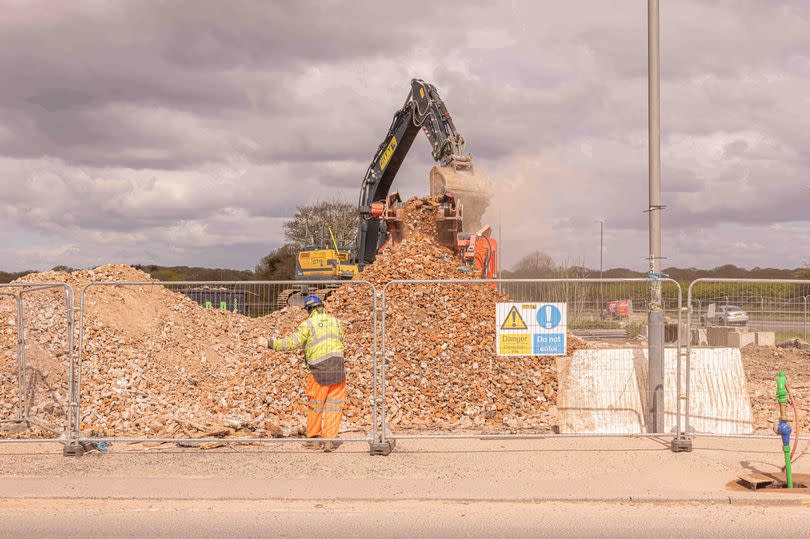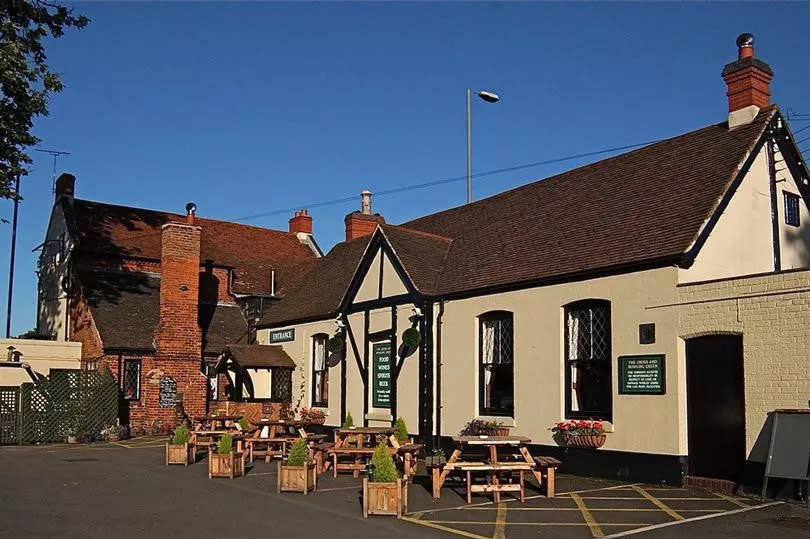Landmark pub on Birmingham outskirts demolished as fans moan 'no respect for heritage'

Demolition of a landmark Edwardian pub between Redditch and Birmingham has sparked gripes over protecting historic buildings. Only rubble remains of The Cross and Bowling Green Inn, off the M42 Junction 3 at Beoley.
Parts of the historic inn in Alcester Road, Bransons Cross, dated back to 1903. It was primarily used as a pub before being converted into the Indian Rajput restaurant in 2009 and later falling into disrepair.
Once an Ansells Brewery pub, the Cross and Bowling Green Inn proved a handy spot for motorists on the nearby M42. Its demise came as Meriden-based Westbourne Leisure, which also owns Birmingham Irish Centre in Kings Heath, took over the site and preferred to demolish it and rebuild a new pub with 35 bed and breakfast rooms.
READ MORE: Win one of 10 £100 vouchers for top supermarkets in our Hovis competition
QUIZ: Can you guess these Birmingham hidden gems through old photos?
Despite first gaining planning permission in March 2022, the company has just completed the demolition after meeting with all Bromsgrove District Council approvals for electric vehicle parking spots, a bin store and replacing a horse chestnut tree that was removed.
A new pub is set to rise from the ashes opposite Beoley Service Station and Costcutter, on the busy A435. It was classed as a ‘non-designated heritage asset' in the planning application, allowing it to be replaced.
Paul Owens from Westbourne Leisure had told the planning committee that improved facilities at a replacement pub and overnight stays would help attract new customers. "Without the demolition and rebuilding of the Cross and Bowling Green to support a bed and breakfast offering, it is likely that the public house will close, and the building will become vacant,” planning chiefs were warned.

Planning documents noted how the new building would benefit the area and local people. It read: “This significant investment in the site will retain the public house and bar for the local community, as well as providing a new facility of overnight accommodation to serve local visitors and travelling businessmen/contractors.
"The addition of 35 bed and breakfast rooms to the public house will serve to underpin the enterprise, particularly during the week when customer numbers are lower, whilst also contributing to boosting the profitability of the bar function."
The original pub had shut and changed hands to an Indian restaurant as numbers started to dwindle.
Residents were divided on social media about the loss of the building with Victorian style red brick and large chimneys, built shortly after Queen Victoria's death. Comments included from Martin Chambers, who said "sadly now gone" alongside photos of the demolished pub. Chris Shorten added: "No respect for heritage".
Not all were sad to see The Cross and Bowling Green Inn disappear. Wilbur Lloyd commented: "Nothing overly special about it so no major loss . Plus we need the land for housing. People cry... if we build on green belt. Can’t have it all ways."
Gary Burchill noted that it wouldn't have mattered if it was "heritage and classed" adding: "So many heritage buildings just left to rot anyway. You can see plenty of that."
Stephen Durrell noted how it was a sign of the times due to "bowling green pubs" becoming unfashionable. He said: "Bowling green pubs (either named or having stated namesake present at the premises) were very popular up until the 1940s and 1950s.
"The decline in social activity slowly dwindled the use of the bowling greens and many became beer gardens discernible by large, slightly rectangular or square garden shape. A few were retained by clubs but many disappeared."
POLL:Should St George's Day be a bank holiday in England?
Beoley is an ancient rural parish believed to have been named after Beauchamps, Earl of Warwick. It now falls under Bromsgrove district and has a mix of farmland and houses on the edge of Birmingham.

 Yahoo News
Yahoo News 
